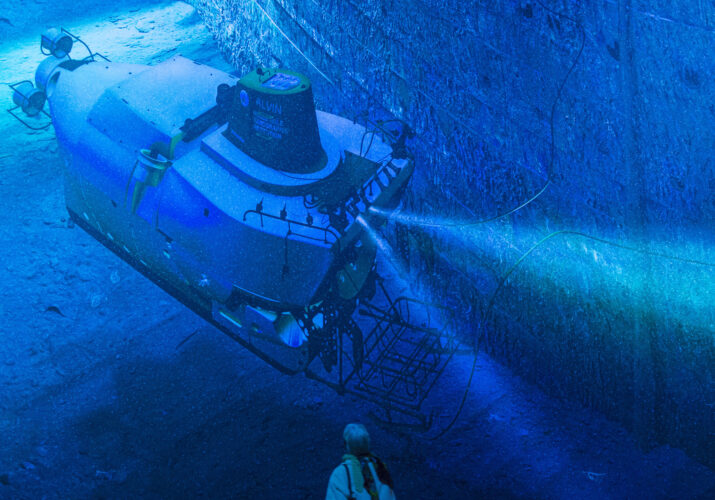A Harvard Psychologist details why high-risk tourism is a growing trend among the very wealthy after the Titan submersible imploded during a tour that costs $250,000 to secure a spot.
The expedition has shed light on the increase of extreme adventure in severely affluent populations. The New York Times interviewed several luxury travel agents who said a particular crop of experienced travelers will “push the boundaries to chase thrills and claim bragging rights.”
Exploring the Titanic wreckage is one of several popular and expensive experiences the ultra-rich partake in. According to Ellen Langer, a Harvard psychologist who specializes in social cognition and decision-making, much of the appeal is that those types of explorations help travelers feel more alive.
Aside from descending oceanic depths, traveling to outer space—which is estimated to be roughly 10,000 times more risky than commercial flying—and boating expeditions to remote areas like Antarctica are among the more dangerous travel excursions en vouge with the rich.
Some wealthy individuals develop a habit of risky explorations, essentially deeming the activities a way of life. Investor and multimillionaire, Victor Vescovo has explored the depths of all five oceans, diving 27,480 to the deepest spot in the Atlantic, the Puerto Rico trench. In addition to ocean exploration, billionaire Hamish Harding, who perished in the Titan, had also gone to space.
Langer explained to Insider that the wealthy are willing to spend fortunes to be put in potential grave danger so they can break the mundane nature of their everyday routines.
“Many of us are sealed in unlived lives and are mindless much of the time,” she said. “Doing something dangerous requires that we become mindful, and mindful engagement is literally and figuratively enlivening.”
“Sadly, many of these people don’t know that it’s easy to be mindful without risking their lives,” she added.
Managing director for luxury travel agency Knightsbridge Circle, Peter Anderson told the New York Times that a recent client sought to visit South Sudan, which is on the list of only 19 countries that has been labeled as unsafe for travel by the U.S. Department of State. The trip planning procedures “involved consultations with security experts on how to best mitigate potential dangers,” he said.
“They’re so accustomed to what they consider to be typical vacations that they begin to seek out more unique experiences, many of which involve a degree of risk,” Anderson said.
Occasionally, plain old curiosity is the primary motive.
“I guess what drives me is this inherent sense of intense curiosity that was cultivated in me when I was a child. I’ve always wanted to know more and to get to the other side of the hill to find out what lay beyond,” Vescovo told Insider.
There’s also the inclination for successful individuals to imagine they will be fruitful in every field—even ones they have zero knowhow in, or that could lead to immense danger, like the trip on the Titan submersible. “They probably identify with people who have been successful and presume they too will be successful,” Langer said. “It would be rare for someone to say, ‘This really may kill be but what the hell.'”


















Add comment